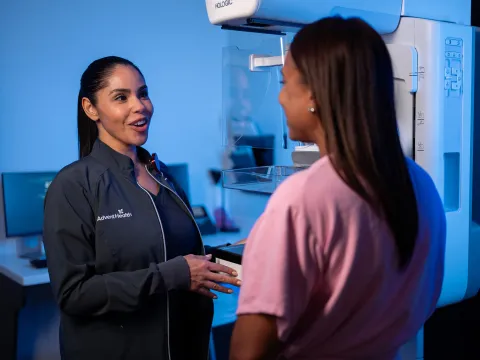- AdventHealth

Choose the health content that’s right for you, and get it delivered right in your inbox.
As a regular course of action, your doctor will likely recommend an annual prostate screening beginning at age 50 (although it could be suggested as early as 40 if you’re at greater risk). Because catching prostate cancer early — before it spreads and while you have the best chance for cure — can save your life.
While these screenings can seem scary if you don’t know what to expect, understanding them and what the results can mean for your health can go a long way in easing your worries.
What Are the Risk Factors for Prostate Cancer?
It’s impossible to predict whether or not a person will develop prostate cancer. But you can look for certain factors that point to an increased chance of getting it, including:
- Age
- Eating Habits
- Ethnicity
- Exposure to Certain Chemicals
- Family History
- Gene Changes
- History of Related Conditions, Such as Inflamed Prostate
- Obesity
- Smoking
It’s important to remember, however, that having one (or even several) of these risk factors doesn’t mean you’ll develop prostate cancer. These are simply factors to consider in determining your risk, and whether or not a prostate screening is right for you.
How Will I Be Screened for Prostate Cancer?
There are a number of tests that could be recommended to help your physician diagnose or rule out prostate cancer. No matter which screening you need, you can relax knowing that none of them are as bad as you think. Your primary care physician may perform one or both of these relatively painless tests.
PSA Blood Test
This blood test checks your level of prostate-specific antigen (PSA). The normal level of PSA for a healthy man is 4 nanograms per milliliter of blood. Since no two men are alike, a higher level doesn’t necessarily mean you have cancer and a lower level doesn’t mean you’re cancer free. These numbers just serve as a baseline for your primary care doctor to determine if further testing is needed.
If you’re an older adult male, your primary care physician may perform other lab tests such as lipid and metabolic panels at the same time as your routine PSA to screen for other common age-related health issues. In this situation, you may be required to fast prior to testing.
Digital Rectal Exam (DRE)
During a DRE, your primary care physician will perform a physical exam, feeling for any nodules, lumps, masses or tenderness on or around your prostate gland. The exam itself is relatively painless and the information gained can be invaluable.
What If My Results Are Abnormal?
Abnormal screening results may indicate you have prostate cancer, or require further testing before your physician can make a proper diagnosis. Either way, it’s best that you’ve caught any potential health issues early, when they can be better understood so you stave off future complications or when they can be best treated.
Your Doctor Knows Best
Talk with your primary care physician before deciding if prostate screening is right for you. Taking the mystery out of screening procedures and understanding your risks can gives you better control over your health decisions.




